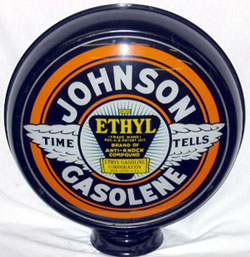The Recorder: “A federal judge turned down a request for more than $2 million in fees and sanctioned a San Francisco plaintiffs lawyer $25,000 for submitting false fee applications in civil rights litigation against FedEx.” Judge Susan Illston wrote that Waukeen McCoy’s “acts of misconduct with regard to the fee petitions are among the most egregious that this court has seen in almost 14 years on the bench.” More: California Civil Justice. Earlier: Nov. 14, 2007 (McCoy’s firm “billed [opponent] Federal Express for 23.5 hours of one of its attorneys’ time over a single day”), and, on the same lawyer, July 10, 2000.
Archive for 2009
CPSIA: the countable costs
In some ways the most distinctive costs of the Consumer Product Safety Improvement Act are the human-scale kind that are hard to measure — the handicrafters’ livelihoods blasted, the families unable to find sturdy winter clothes at the Goodwill, the kids who can’t get their dirtbikes serviced, the threats to vintage children’s books and to small-run items for special-needs kids.  But there are also a number of measurable, tangible economic costs that might capture lawmakers’ attention, and which affect larger, more sophisticated actors as well as the small producers, dealers and families that have found it so difficult to make their voice heard in Washington.
But there are also a number of measurable, tangible economic costs that might capture lawmakers’ attention, and which affect larger, more sophisticated actors as well as the small producers, dealers and families that have found it so difficult to make their voice heard in Washington.
- A survey by the Toy Industries of America says the law has already cost toy businesses more than $2 billion [Playthings, Toy News]. As readers will recall, the minibike/powersports industry projects that the ban on its youth products will cost $1 billion by year’s end. That’s $3 billion right there, representing only two of the many industries hit by the act; it doesn’t include (for example) apparel, resale (two apparel-making groups report $700 million in stranded inventory, costs to Goodwill and Salvation Army may exceed $270 million), books, school and party supplies, sporting goods, furniture, and so forth.
- The stock price of well-known kids’-apparel retailer Gymboree slid by 40 percent overnight early this month “on news that it took massive inventory write-offs in the most recent quarter and suffered sharp margin declines and sales losses, all as a result of the CPSIA”. At a conference call with investors, Gymboree chairman/CEO Matt McCauley noted that phthalates are found “in many screenprints”, which makes their ban an important issue for apparel. Remember the court’s last-minute ruling that the phthalates ban would have to be retroactive to existing inventory, even though the CPSC had given guidance to manufacturers that only post-Feb. 10 production would be affected? Attorney Aaron Colangelo of the Natural Resources Defense Council, who had litigated that case successfully, was quite dismissive about the difficulties of compliance at the time. Well, according to McCauley, that one decision rendered 1.7 million units of inventory at his chain unsalable. “As many of you know, we operate on a nine to 12-month product cycle,” he told the investors. But of course few on Capitol Hill seem to have thought it amiss for new rules to be imposed within a period of a few months, or, as with the court reversal, a few days.
-
Auction Bytes: “On March 14, 2009, Amazon.com will remove approximately 2,500 products from the Toys and Baby categories in order to comply with the Consumer Product Safety Improvement Act of 2008 (CPSIA). The company said it had not received certification of CPSIA compliance from the manufacturers of those products. Amazon will cancel all seller offers against the ASINs, and their detail pages will be removed from the site.” (company’s statement). For readers who are new to the subject, that does not imply that any of the 2,500 items pose any serious risk, nor does it imply that any particular item would fail to pass the new thresholds with flying colors.
 In many instances it indicates only that the makers have not gotten their ducks in a row to obtain GCCs, possibly because they’re unfamiliar with the process, or can’t afford the tests, or plan to get out of the business soon.
In many instances it indicates only that the makers have not gotten their ducks in a row to obtain GCCs, possibly because they’re unfamiliar with the process, or can’t afford the tests, or plan to get out of the business soon. - Note that as in the Amazon case, the much-publicized stay of CPSC enforcement for a year applying to most newly manufactured goods doesn’t in practice protect small makers from seeing their product lines squeezed out of major channels of commerce if they fail to launch a compliance program (no matter how unlikely it is that their knitted booties or wooden puzzles contain lead). To cover themselves from legal attack, deep-pocket retailers demand GCCs (general certificates of compliance). Last month, apparel-maker mentor Kathleen Fasanella wrote: “Most (okay, all) of the retailers I’ve spoken to, are still requiring GCCs [despite the stay]. Furthermore, they are enforcing the August standard of 300ppm.”
- Plum Privy has been compiling estimated costs of the law from news reports, with the tally already exceeding $4 billion. Persons in affected lines of work may want to check in at that site to offer additional information or refinements.
- Understatement of the year? Writing in Apparel mag, lawyers with Mintz Levin call the law “extremely burdensome and bewildering“.
Leave that emotional-support companion animal outside?
Defying a national trend, Utah has moved to amend the interpretation of its state-level version of the Americans with Disabilities Act so as to curtail pet owners’ rights to demand that their “emotional support service animals” be allowed onto the premises of reluctant business owners. [Salt Lake Tribune via Patrick at Popehat]
No-go for sanctions defense of “I’m not a good lawyer”: Shales v. Local Union No. 330
The losers of a union election sued the winners in federal district court in Chicago, but it wasn’t a very impressive lawsuit. One plaintiff claimed that the threat of being fired caused an asthma attack, but since she in fact got a raise, and she had been having asthma attacks for 25 years, and there wasn’t any threat, her claim of intentional infliction of emotional distress didn’t get very far. The district court issued $80,000 in sanctions under Rule 11, just a fraction of the $200,000 that the defendants claimed to have paid in legal expenses, but James Gordon Banks objected to even this amount on the grounds that he was poor (though this was in some doubt, because of the assets in his wife’s name) and because he was only recently out of law school. Unfortunately for him, he drew Judge Easterbrook on the appeal, and we know that the judge does not suffer fools lightly:
If Banks really is a bad lawyer (as he depicts himself), and is poor because people are not willing to pay much, or at all, for his services, then he should turn from the practice of law to some other endeavor where he will do less harm. No court would say, in a medical-malpractice action, that a doctor whose low standards and poor skills caused a severe injury should be excused because he does not have very many patients. No more is a bad lawyer excused because he has few clients.
The $80,000 sanction was affirmed, and many took note of the humorous opinion: ABA Journal; UK Times OnLine; Wisconsin Law Journal; Courthouse News.
March 23 roundup
- Probate court in Connecticut: bad enough when they hold you improperly in conservatorship, but worse when they bill you for the favor [Hartford Courant]
- Does “Patent Troll” in World of Warcraft count as a character type or a monster type? [Broken Toys]
- 102-year-old Italian woman wins decade-long legal dispute, but is told appeal could take 10 years more [Telegraph]
- “This Cartoon Could Be Illegal, If Two Iowa Legislators Have Their Way” [Eugene Volokh]
- David Giacalone, nonpareil commentator on attorneys’ fee ethics (and haiku), has decided to end his blog f/k/a. He signs off with a four-part series on lawyer billing and fairness to consumers/clients: parts one, two, three, four, plus a final “Understanding and Reducing Attorney Fees“. He’s keeping the site as archives, though, and let’s hope that as such it goes on shedding its light for as long as there are lawyers and vulnerable clients. More: Scott Greenfield.
- Even they can’t manage to comply? Politically active union SEIU faces unfair labor practice charges from its own employees [WaPo]
- Judge in Austin awards $3 million from couple’s estate to their divorce lawyers [Austin American-Statesman]
- “Keywords With Highest Cost Per Click”, lawyers and financial services dominate [SpyFu]
CPSIA on the radio: WTIC “Morning Show with Ray Dunaway”
 I’m scheduled to be a guest on Ray Dunaway’s Morning Show (WTIC 1080 AM, Hartford) circa 7:20 a.m. to discuss CPSIA. For a quick introduction to the law, follow our links for the problems with thrift stores, motorbikes, libraries and books, kids’ garments, and general problems with the law.
I’m scheduled to be a guest on Ray Dunaway’s Morning Show (WTIC 1080 AM, Hartford) circa 7:20 a.m. to discuss CPSIA. For a quick introduction to the law, follow our links for the problems with thrift stores, motorbikes, libraries and books, kids’ garments, and general problems with the law.
P.S. WTIC, the news/talk Connecticut station, has been great on crediting Overlawyered over the years, and host Ray Dunaway said on the air that he gets a lot of story ideas for the show from this site. Thanks!
CPSIA: Congress has spoken. Now go!
A recent report from the Printing Industries of America (reprinted in this March 17 Keiger.com posting, via Deputy Headmistress) contains this distinctly ominous passage:
To date, Congressional majority leaders have stated they are not open to holding hearings nor opening the CPSIA for reconsideration, instead urging industry to pursue the exemption channels provided for in the CPSIA passed last year.

Now go! The great and powerful Oz has spoken!*
*For those disinclined to take orders, there’s always the planned April 1 protest. I’m thinking about making it down to D.C. to see how it goes.
It’s absurd, it’s inane, it’s … Superfund!

Around New England, thousands of owners of gas stations and auto repair shops are being billed tens of thousands of dollars apiece for a $65 million Superfund cleanup. Their offense? They were the ones “who made the effort to properly dispose of waste oil and antifreeze by sending it to the sprawling Beede Waste Oil Co. in Plaistow, N.H. Now they are being punished for their conscientious ways.” [Boston Globe]
March 22 roundup
- No back-alley bikini lines: New Jersey consumer affairs director rejects proposed ban on Brazilian waxing [Asbury Park Press, JammieWearingFool, Jaira Lima and protest site, Popehat, News12 video] Florida, however, won’t let you get a fish-nibble pedicure [WWSB]
- Kids doing well in homeschool but divorcing dad disapproves, judge says they must be sent to public [WRAL, Volokh]
- Al Franken comes out for loser-pays in litigation (well, in this case at least) [MSNBC “First Read”]
- U.K.: “A man who tried to kill himself has won £90,000 in damages from the hospital which saved his life but hurt his arm in the process” [Telegraph]
- Life in places without the First Amendment: “Australia’s Vast, Scattershot Censorship Blacklist Revealed” [Slashdot, Volokh, Popehat]; British Telecom passes all internet traffic through “‘Cleanfeed” filters to identify (inter alia) racist content [Glasgow Herald]
- More on that suit by expelled student against Miss Porter’s School; “Oprichniki” said to be not identical to Keepers of Tradition [NYTimes; our December coverage]
- “Why We Need Cop Cameras” [Steve Chapman, Chicago Tribune] Shopkeepers terrorized in Philadelphia: “The thugs had badges.” [Ken at Popehat]
- Counting former lobbyists in Obama Administration? Don’t forget Kathleen Sebelius [Jeff Emanuel, RedState]
- Wisconsin: “$50,000 claim filed over girl’s time-out in school” [Milwaukee Journal Sentinel]
CPSIA: Malcolm Smith’s protest

Early coverage of the Riverside, Calif. motorcycle great’s civil disobedience at Supercross (auto-plays 12-minute video), DirtRider and more, ATV Rider, Motorcycle.com, Cycle News, American Motorcycle Association. More: Covenant Zone.
